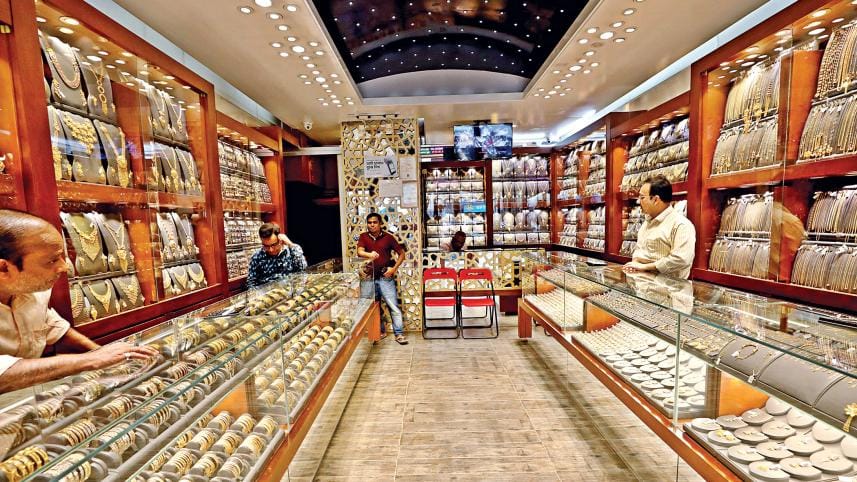Five reasons why gold keeps getting costlier

Gold prices in Bangladesh have surged to historic highs, echoing a global rally that has pushed bullion above $4,000 an ounce (28.3495 grammes). The Bangladesh Jewellers' Association raised local rates to Tk 209,100 per bhori (11.664 grammes) from yesterday — the highest on record.
Here are five key drivers behind the surge:
GLOBAL BULLION RALLY
The global price hike of the precious metal is being fueled by expectations of US interest rate cuts, economic and geopolitical uncertainty, and strong central bank buying. Spot gold remained steady at $4,037.95 (Tk 491,000) yesterday, underscoring the strength of the rally, Reuters reported.
SAFE-HAVEN APPEAL AMID GLOBAL UNCERTAINTY
Gold is considered a safe haven for investment during times of economic downturn and inflation. It is expected that gold will retain or increase its value during periods of uncertainty.
From the Russia-Ukraine war to the Israel-Gaza conflict, investors worldwide are flocking to gold as a safe investment.
Gold saw a sharp increase in April this year when US President Donald Trump launched a trade war against much of the world, and it rallied again in August as the US president attacked the independence of the Federal Reserve, the US central bank, according to a report by Al Jazeera.
CENTRAL BANKS BUYING GOLD
Central banks have collectively bought more than 1,000 tonnes of gold each year since 2022, up from an average of 481 tonnes a year between 2010 and 2021. Poland, Turkey, India, Azerbaijan, and China were among the leading buyers last year, according to a report by the BBC.
TAKA DEPRECIATION INFLATES LOCAL COSTS FURTHER
Although Bangladesh does not import large quantities of gold, domestic prices remain closely tied to global market trends. Alongside rising international prices, the depreciation of the taka has led to a sharp rise in the cost of the precious metal. Since FY21, the taka has lost 43 percent of its value against the US dollar, raising import costs.
Gold is mostly imported by international travellers under the baggage rules of the National Board of Revenue.
DEMAND OUTSTRIPS SUPPLY
Bangladesh's annual demand is estimated at 20-40 tonnes, of which 80 percent is met through informal channels. In the fiscal year 2023-24, about 45.6 tonnes entered the country, still falling short of consumer appetite, particularly during wedding seasons and festivals.
There are allegations that much of the imports are smuggled out to India. The imbalance keeps the domestic market tight.



 For all latest news, follow The Daily Star's Google News channel.
For all latest news, follow The Daily Star's Google News channel.
Comments